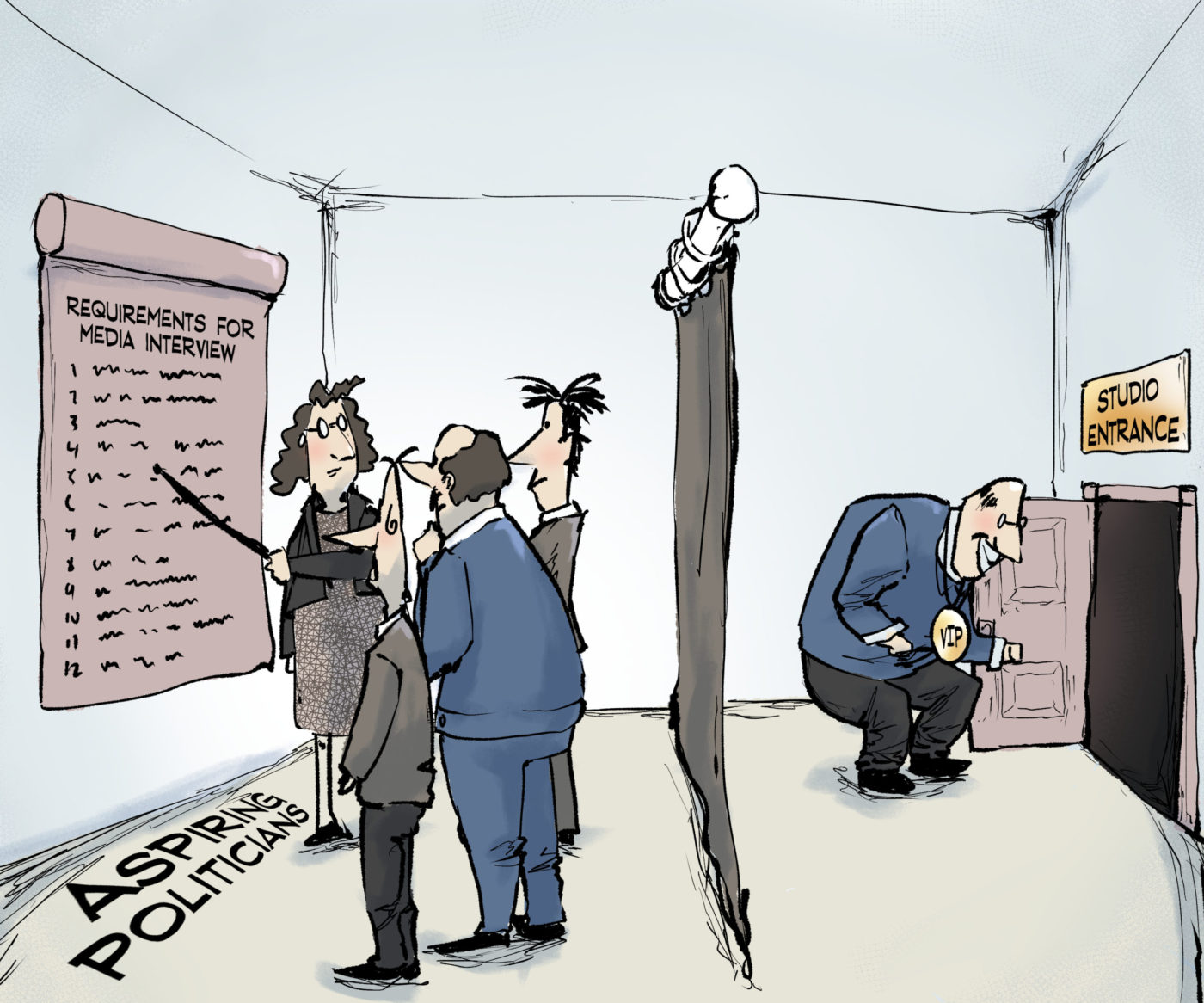AT THE onset of 2022, broadcast journalist Jessica Soho and television host Boy Abunda conducted media interviews for presidential candidates. Both interviews were aired online and on television. However, out of the 10 official presidential candidates, only five pre-election survey top runners were invited to both of these events, namely Senator Panfilo Lacson, Manila City Mayor Francisco “Isko” Moreno, Senator Emmanuel “Manny” Pacquiao, Vice President Leonor “Leni” Robredo, and late dictator’s son Ferdinand Marcos Jr.
While candidate presence during political debates is not mandatory, results from the 2016 National Elections have proven the program’s magnitude of influence among the Filipino people and election turnouts. This means that depriving political underdogs of the same national platform as their popular counterparts jeopardizes inclusivity and access to information during the May 2022 National Elections.
As of February 27, the Commission on Elections (COMELEC)-held Presidential debate on CNN Philippines was able to confirm the attendance of nine presidential and seven vice-presidential candidates to their electoral debates, making them one of the only major media companies to do so during this campaign season.
Understanding that the campaign period is a crucial time in deciding the country’s fate comes with leveraging the national reach of major media platforms into more holistic coverages.
A history riddled with gates
The 2016 PiliPinas Debates was the first nationally televised presidential debates held by the COMELEC in over two decades since the historic 1992 Constitutional debates. In both years, the media-held programs invited all presidentiables to participate in the event.
The popularity of the 2016 Presidential Debates soared and resulted in a 40.6 percent viewership nationwide, following the presence of all five presidential runners. Since then, numerous other national debates such as the 2019 Senatorial Debates have followed in mainstream media.
However, exhaustive and accessible coverage remains a major issue in the history of media-held national debates. Rappler sued former COMELEC Chairman Andres Bautista during the 2016 election campaign period for restricting broadcasting rights of the PiliPinas Debates 2016 to only hand-picked media partners.
Leodegario “Ka Leody” de Guzman, who was uninvited to Abunda’s and Soho’s media events, even resorted to hosting a personal Facebook live stream where he answered the same questions asked to his competitors on-air. De Guzman asserted the importance of these debate platforms in providing people “all sides so that they can decide more appropriately.”
Regardless of poll results, Presidential bets with one-percentage point marks stood on the same stage as the top runners during the February 2022 CNN Presidential debates. Both Jose Montemayor Jr. and de Guzman with similarly low poll marks were able to make their stances on labor issues more visible during the program.
The insistence of everyone’s presence is borne out of the perceived influence that these televised events have. There is belief, even, that the incumbent President Rodrigo Duterte can consider the COMELEC debates as a game-changer for his 2016 campaign. The once unparalleled live coverage that persistently conveyed the character and platforms of the election candidates have considerable magnitude in the country’s election outcomes.
Thus, selectiveness over which runners are invited to these programs may likewise come with a cost.
Unbreakable cycle
Amid disinformation in social media spaces, national media coverages are key vehicles of public access to information during election and campaign periods.
Unbiased election coverage and invitations have proven to be essential, with presidentiables stressing the importance of showing up and sharing one’s platform. Lacson underscored that debates level the playing field, thus allowing all candidates–regardless of prior experience or pre-existing political associations–to exhibit their sincerity and knowledge.
Conversely, there have been speculations that the absence of inclusive debates may only further perpetuate the dynastic nature of Philippine politics, as observed in the recurrent evasion of Marcos Jr. and his Vice Presidential running mate Sara Duterte. By focusing instead on the controlled media narrative of their tandem, Duterte and Marcos–two of the country’s most prevalent political dynasties–can confidently snub political debates for as long as public sentiment is in their favor.
As a result, many systemic political struggles are amplified through the exclusionary election and campaign initiatives, disincentivizing potential challengers from entering electoral races.
Similarly, this diminishes national media’s coverage accountability as future election campaign coverages could suffer from selectiveness and a lack of impartiality that only hampers the cycle of harmful echo chambers and a regressive Philippine politics.
Playing the cards right
As election day nears, reviewing potential incumbent leaders through holistic lens is more crucial than ever. Media companies must conduct more broadcasts that accommodate most, if not all, candidates to ensure that the public is exposed to aspirants of various calibers in making an informed perception and vote.
The COMELEC-sponsored CNN Presidential debate, which invited all presidential and vice-presidential bets, is a demonstration of the equitable coverage that the public deserves. For these reasons, it ought to be the standard protocol in other major media-led national election debates.
As inclusive media coverages become a beacon of hope in equalizing the playing field across political names and runners, Filipinos now hold a heavier stake in choosing their cards come May 9.







